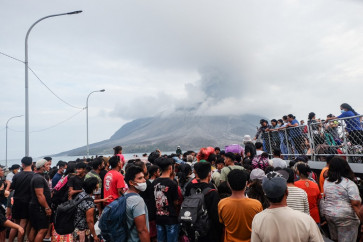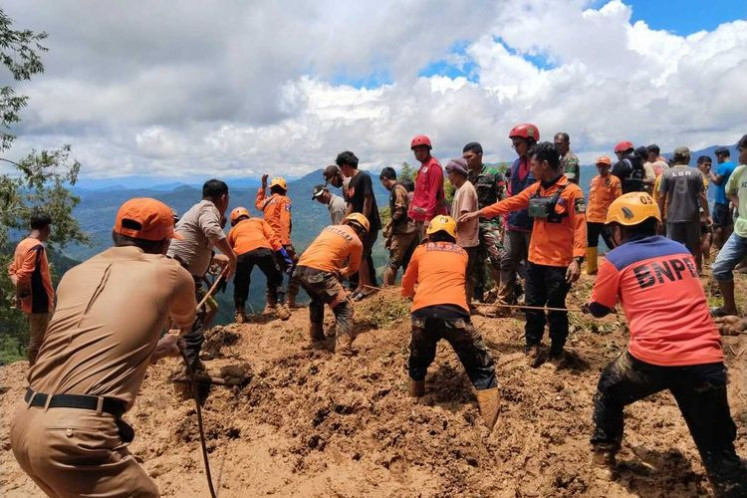Rp 3.15t for drainage and clean water
The government will increase investment on sanitation to Rp 3
Change Size

T
he government will increase investment on sanitation to Rp 3.15 trillion (US$321.3 million) next year to reduce potential losses from poor hygiene facilities, estimated to be up to Rp 56 trillion a year.
The potential losses, calculated from unnecessary expenses such as treatment for diarrhea and time off work throughout 2010, are based on a World Bank study on water safety from 2007.
'By spending more next year, we will improve sanitation, particularly in septic installations, sanitary landfills and intermediate treatment facilities,' Public Works Ministry health development director Djoko Mursito said in Jakarta on Thursday.
According to World Bank data released in April, one out of every three people in the world has no toilet.
Lack of access to sanitation accounts for global economic losses of an estimated $260 billion annually, more than the entire gross domestic product of Chile.
Without proper toilets or sewage systems, many people in developing countries, including Indonesia, use rivers or fields, unknowingly spreading the germs that cause diarrheal disease in their own communities, as well as those downstream.
Diarrhea is the second leading cause of death in children under five years old.
This year the ministry allocated Rp 2.9 trillion for more than 80 projects. The largest share went to the urban drainage systems worth Rp 1.28 trillion in 55 cities nationwide.
In addition, the ministry's Imam S. Ernawi said that the rising investment would help reach the Millennium Development Goals (MDGs).
Imam said that the ministry wanted to increase the access to sanitation from 55.5 percent in 2010 to 62.4 percent by the end of 2015.
'We are optimistic that we can reach the target because there has been a lot of improvement in sanitation facilities. The figure was around 56 percent at the end of last year,' he said.
Sanitation as defined by the MDGs means people having access to clean water, toilets with septic tank systems and public awareness of the importance of sanitation for their lives, he added.
Poor sanitation leads to costs in the hundreds of billions of dollars every year by damaging health, the environment, and tourism.
The ministry sees itself as agent of change for sustainable sanitation development. One of the efforts is the National Sanitation Jamboree that has been conducted since 2008, promoting sanitation to junior high school students.
This year, more than 200 students are expected to take part in jamboree from June 24 to 30 in Ancol, North Jakarta.
When the students return to their provinces, they will be ambassadors of sanitation who would help the government achieve the MDGs, Imam said.









